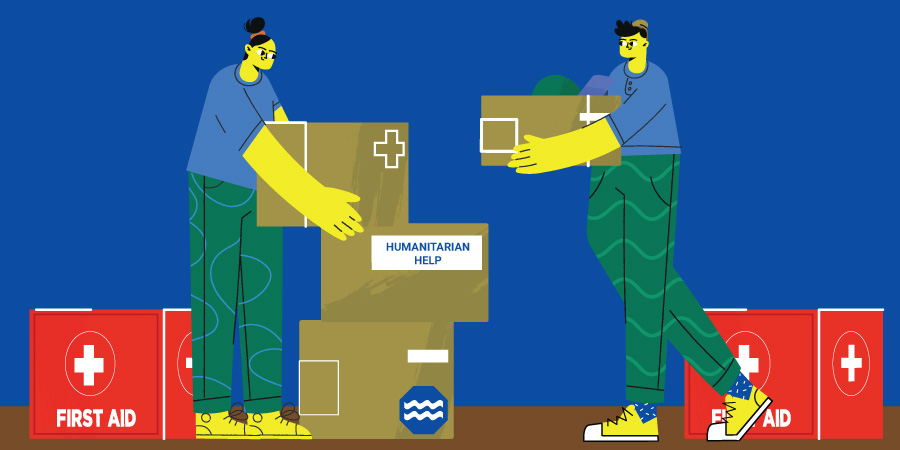Spain floods latest: Apocalyptic scenes revealed in images of devastation—as warnings issued of more torrential rain—Sky News 31/10/2024 (2 p.m.)
At least 95 people have been killed after flash flooding swept large areas of Spain. A major rescue effort is underway to find the large numbers of people still missing—but forecasters are warning more torrential rain is on the way for some of the worst-hit areas.
Spain’s worst floods in a century hit Valencia region, killing at least 158 people and leaving others missing —CBS News 31/10/2024 (7 p.m.)
As it is becoming blatantly clear, one of the most pressing challenges of our time is flooding and climate change. Awareness of flood risk management, adaptation strategies, success stories, and effective communication related to climate change must be communicated to the public and, more importantly, to students. Personal experiences concerning flooding should be more accessible so as to draw attention to the psychological and physical consequences of such a disaster.
Nicola, a resident who witnessed the flood in Italy firsthand, describes in the third podcast his shock and disbelief as water levels surged dangerously. He initially underestimates the rising water levels and the potential danger, but as the flood progresses, he observes the chaos firsthand. His words are overwhelming: “I was saying it will stop now. It will stop, but it kept advancing. I went into the studios, and suddenly, a cascade of water opened the door. At that moment, I realized that I was in danger. I ran away to reach the car but struggled because the water was already above my knees.”

In Thessaly, Greece, survivors of similar floods share their own harrowing stories. Elena, who lost almost everything, speaks of the heartbreak of watching her home and belongings swept away. A student who met her back then says, “I’ll never forget the look in her eyes, an overwhelming mix of despair and determination. Seeing her struggle to even survive broke my heart. I knew I had to do something! I took the initiative and organised a fundraising campaign in our community, reaching out to friends and local businesses, sharing Elena’s story. It was powerful to see people come together,” the student explains. “Each donation felt like a glimmer of hope, and soon we had enough to provide her with food, clothes, and essential supplies. We helped her find a temporary job at a local café. When Elena finally moved into her new home, tears of gratitude streamed down her face. It was a powerful moment that reminded me of the resilience of the human spirit. Being part of her journey to rebuild her life was one of the most rewarding experiences of my life, and it filled my heart with hope.”
Both Elena and Nicola believe there is an urgent need to raise better awareness of this kind of disaster in local communities, regionally, and globally. The consequences of such a traumatic experience are not only physical but also mental for everyone. After the calamity, the feeling of loss is intense. Anyone who has experienced such a predicament might feel a psychological struggle in the aftermath. This type of devastation is insurmountable. These people also experience feelings of agony as they cannot communicate with their loved ones due to power shortages, etc.
In the long term, this experience is highly likely to create psychological trauma in people. Nicola says, “It’s been a nightmare, and now I struggle. Even when I get close (to his home and workplace), there’s a smell that gets in your nose, and you don’t get rid of it, even if you want to. The smell of mud mixed with the smell of sewage… I go back to the river. But what was a beautiful memory has been twisted. It will remain like that. It’s a kind of wound.”

Coping mechanisms and memory play a significant role in dealing with such traumatic experiences. It is essential to stay alert to the possible dangers and find effective measures to deal with them. The floods in Spain are a devastating reminder of the increasing frequency and severity of extreme weather events, often fuelled by climate change. The Valencia region has been hit by floods of unprecedented scale, and meteorologists warn that such events may become more common.
However, people who have found themselves dealing with such disasters report that despite the first feelings of hopelessness one might have, they feel stronger to cope with similar situations in the future. The situation could be improved if people were more prepared and aware of the risks that a flood has. To their mind, it is of high importance to be aware of the impact a flood has on someone’s living or working environment. They are highly concerned that a large majority of the public often underestimates such extreme weather events. Consequently, it is suggested that municipal emergency plans be implemented, introducing safer areas to citizens during emergencies.
Regardless of the sense of loss and despair at first, we can be currently hopeful for the future because of the various attempts to improve the situation. The effort to cope with climate change and provide effective solutions concerning extreme weather events is highly valuable as it will help save lives and property.
Together, we can combat climate change! We can prevent floods by protecting our environment, fostering sustainable practices, and building resilient communities for future generations. The future is in our hands! Let’s take action now!
https://www.cbsnews.com/news/spain-flooding-valencia-region-deaths-rescues flash-floods/

